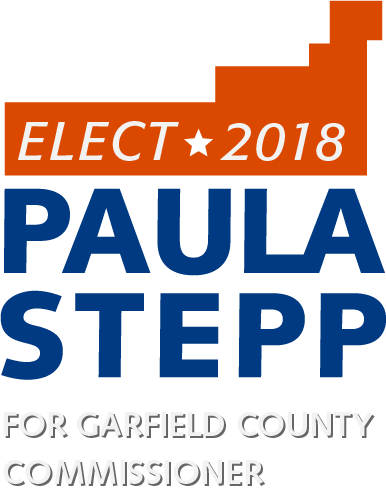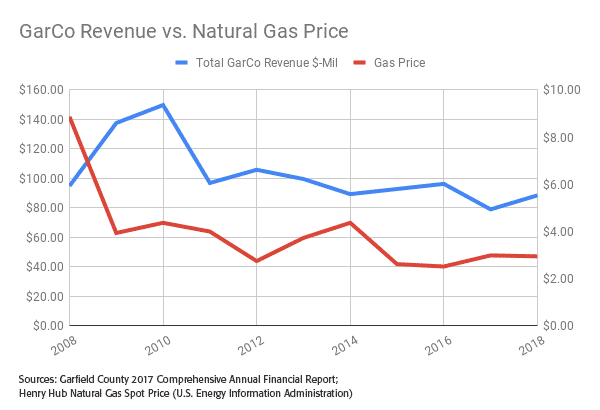Dual Ballot Initiatives Challenge Garfield County
Last night (Oct. 15), on Aspen Public radio, I said I will not tell people how to vote on Proposition 112. I also said, that as a county commissioner candidate, I would probably vote against the setback. My reason for that is because I am concerned about school districts, fire districts, library districts, water conservation districts, and our towns and other agencies. I am also concerned the 2,500 foot set back does not allow for variance.
But the rules need to change to take care of people affected by drilling in their backyard. I believe a 500 foot set back is not far enough, and it is inconsistent with the 1,000 foot setback for public buildings.
I know constituents who support Proposition 112 are disappointed. Vote your conscience, always. And my constituents who struggle with Proposition 112, as I do, must vote their conscience, as well.
My role is to bring hope to all that, whether proposition wins or fails, you have an advocate on the Garfield County Board of Commissioners who will fight for our communities’ health, safety and well-being.
A Double Conundrum
Garfield County voters face a double conundrum of two related initiatives on our ballots this November. So far, the County Commissioners are only talking about one. These two key ballot initiatives, 112 and 74, could have a dramatic impact on tax revenue and, consequently, how we govern and pay for running our state, county, towns and special districts.
Proposition 112
What would you trade to keep a drilling rig 2,500 feet away from your home?
The opponents of Proposition 112 say that if it’s approved, we’ll be trading off the entire gas and oil industry in Garfield County and all the bounty that comes with it, including: a quarter of Garfield County’s current tax revenue; virtually all future tax revenue from the gas and oil industry; millions in annual grants from the Federal Mineral Lease District; some 1,500 high-paying industry jobs; and the solvency of many local businesses.
Proponents of Proposition 112 counter that some things are beyond price, such as: public health, clean water and air; fewer chemicals pumped into the earth; less “produced” water, which is too saline or contaminated by the industry’s hydraulic fracturing process for agricultural or human use; no more noise from drilling rigs and compressors; and no more private property devalued the day a rig moves into the neighborhood.
Many people are willing to make that trade and vote for Proposition 112. They’re frustrated with an industry that pushes too close and with a government that they feel doesn’t push back enough for them. They also dispute the claim that Proposition 112 will shut down oil and gas exploration since, even with a 2,500-foot setback, directional and horizontal drilling should still be able to access many deposits without disturbing homes, schools and other protected areas. And, enough leases on public land will be available.
Proposition 74
Proposition 74 adds further fuel to the fire. Sponsored by the Colorado Farm Bureau but backed largely by oil and gas interests, it asks citizens to change Colorado’s constitution to require governments: “to award just compensation to owners of private property when a government law or regulation reduces the fair market value of the property.” Under Proposition 74, any loss of value caused by state or local governments would have to be compensated, whereas property owners now are compensated when those actions cause an almost total loss in value or use.
If Proposition 74 passes, we the taxpayers would have to pay property owners the fair market value for any loss— including lost income from prohibited mineral extraction — caused by state or local laws or regulations. This includes temporary or incidental impacts. Oil and gas companies could, theoretically, demand compensation from government entities that are simply enforcing current health and safety laws.
Ironically, this proposition could also allow homeowners to demand compensation — from taxpayers — if an approved well devalues their property. State, county and local governments could be virtually paralyzed by having to choose between damage claims from the oil and gas industry or from other property owners.
The Perfect Storm
It’s easy to imagine the financial mayhem if both propositions 112 and 74 pass. A perfect storm for a perfect mess.
Unfortunately, there are no simple answers. Since 2012, natural gas production in Garfield County has drifted downward, losing more than 30 percent of its value since the last peak (2012), along with millions of dollars of local tax revenue.
Meanwhile, special districts, including public schools, fire districts, libraries, the Grand River Hospital district and Colorado Mountain College have seen their tax revenue slowly choked by property tax cuts and refunds mandated by the state’s Gallagher and TABOR amendments.
As a result, we’re now being inundated with mill levy requests to help these cash-strapped districts. On this fall’s ballot, you’ll be asked to reset exactly how valuable each of their services are to you personally, to your business, to your community and to your future.
Uncertain Future
If Proposition 112 fails, we may be able to avoid another painful economic correction. But if it passes, the local oil and gas industry will almost certainly start to wind down as companies move their exploration activity to more profitable locales, while existing wells deliver less and less. Will the oil and gas industry totally abandon Garfield County? Will enough natural gas extraction shift to our county’s public lands to lessen the economic blow? Will Proposition 112 be stuck in the courts for years? It’s all debatable.
Regardless of whether we see a catastrophic bust or continued gradual decline of natural gas production, we should have better prepared for this possibility during our wealthy years. We’ve lost time doing business as usual. Now it’s time to invest more in infrastructure to support and stimulate our economy, and to encourage more business diversity. That’s how we can lessen our recurring boom and bust cycles and our over-dependence on the inherently volatile prices and profits of natural gas.
And what if Proposition 112 doesn’t pass, but Proposition 74 does? We’ll be back to 500-foot setbacks. We’ll also likely be looking at stacks of legal bills that will have to be paid with public dollars taken from the coffers we need to take care of our communities.
MIddle Path: Reasonable Self-interest
Is there a middle ground we can agree upon if neither proposition passes?
The specter of Proposition 112 should make it clear that it’s in the self-interest of the oil and gas industry to back off, with reason and compromise, where they are not wanted by concerned property owners, neighborhoods and, yes, watersheds. Self police themselves. Consider the benefit for the entire industry.
Furthermore, the state and county, wherever possible, should act robustly in the best interests of its citizens. Protecting them will also help to protect the long-term future of the oil and gas industry.
If elected as a Garfield County Commissioner, I pledge to work with both our citizen groups and leaders in the oil and gas industry to negotiate a lasting and equitable solution that protects the people of Garfield County in their homes and communities, and provides reasonable opportunities for the gas extraction industry.
I will use this office to stand up for the health and well-being of Garfield County and its environment. I will expect oil and gas companies to be reasonable and good neighbors. And I will hold them accountable.
It will be hard work and take years. What are you willing to trade off?
Paula Stepp is the Democratic candidate running for Garfield County Commissioner in District 1.
See More Issues


